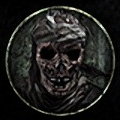So many video essays about how to get the 3 act structure right, the Hero's journey, analyzing films through this lens, etc. Dan Harmon is always yapping on about his "story circle"... it's like damn is writing really that bland?
I feel like adherence to these guidelines and the quest to find the perfect structure cheapens things and generally gets in the way of things. But I don't know anything about writing so maybe that's nonsense. What do you guys think?
Structure is like ideology, some form of that is always there whether you admit or not.
I've been endlessly worldbuilding for 7 years and I refuse to write any actual story
This is why these days I mostly find myself reading avant-garde literature and films, since once you free yourself of the need for "plot" and "story structure" you get far more interesting experiences that are much more about vibes. Proust doesn't really have a "plot" so much as it's just about a guy who gets older and goes to a lot of parties. Ulysses "follows" a story structure in that it takes broad plot outlines from the Odyssey but imparts them to the average day of an average guy in early 20th century Dublin and it's fantastic for it. "Mirror" by Tarkovsky laughs in the face of "story structure," just throwing images and memories at you left and right and letting you figure out the pieces. Bela Tarr's film and Krasznahorkai's novel Satantango have a plot, maybe. Thomas Bernhard's works don't really have a story structure outside of "guy rambles on for a long time in a sort of crazy fashion" and I love them. There is absolutely a world outside of rote story beats and structure, you just have to get out there and find it. I still "like" story structures, and they absolutely have their place, but once you understand them and start bending the rules and subverting them and just doing whatever you want things get really interesting and enjoyable in a way that an MCU movie or whatever can never even dream about.
Bernhard writes these giant rambling books about the moral and political decay of Austrian society. He hated the country, and explained how it was merely a Nazi state that refused to deal with its past, replacing the swastika with the Catholic cross and carrying on. He books are pounding, stylistic triumphs that meander and drive you crazy, really making you feel like you're inside the mind of the narrator, all of whom are trying to create the "perfect" piece of art and losing their minds as they do it. Words spiral, thoughts repeat, sentences lead nowhere and you get to go on a wild and unrelenting journey with no chapters, no paragraphs, just a giant wall of manic text. They're both fun and very serious, and I really recommend him. I'd start with Woodcutters and go from there.
Some people genuinely believe EVERY story follows the Hero’s Journey exactly and it’s fucking wild to me
:jordan-eboy-peterson:
Wait til you hear about the popular "Save the Cat" story blueprint which literally tells you what to do on which page exactly.
Holy crap - I did some googling. There are even software programs that help you do this shit so you can entirely remove anything creative from your storytelling.
How to Outline Your Novel with the Save the Cat! Beat Sheet
Step 1: Divide Your Target Word Count Into 3 Acts
The first thing we need to do is break down our total word count into three sections—or acts. In general, the:
- First Act represents about 25% of the total word count
- Second Act represents about 50% of the total word count
- Third Act represents about 25% of the total word count
So, that means we can break down our 80,000-target word count like this:
- First Act (80,000 x.25) = about 20,000 words
- Second Act (80,000 x.50) = about 40,000 words
- Third Act (80,000 x.25) = about 20,000 words
Step 2: Divide Each Act Into Scenes
Now that you know approximately how many words will make up each act, you can divide each act into a target number of scenes.
If you don’t know how many words per scene you write on average, use a target word count of 1,500 words per scene. I always recommend writing scenes between 1,000 and 2,000 words with the sweet spot being around 1,500 words. A 1,500-word scene is long enough to convey what’s happening and short enough to hold your reader’s attention and make them want to continue reading.
So, here’s how we can break down each act into a target number of scenes–the:
- First Act (20,000 words / 1,500-word scenes) = about 14 scenes
- Second Act (40,000 words / 1,500-word scenes) = about 28 scenes
- Third Act (20,000 words / 1,500-word scenes) = about 14 scenes
Based on the math, our target scene count is 56 scenes. You’ll probably notice I rounded up the number of scenes for each act—that’s totally okay! I’m showing you how to make a plan for your novel—it’s not something you have to follow to a tee. Step 3: Figure Out Where the 15 Story Beats Go
Now that you know how many scenes go in each act, you can start to figure out where each of the 15 story beats will go. In his book, Save the Cat! The Last Book on Screenwriting You’ll Ever Need, Blake Snyder lays out where each beat should go:
- Opening Image – 0% to 1%
- Theme Stated – 5%
- Setup – 1% to 10%
- Catalyst – 10%
- Debate – 10% to 20%
- Break Into Two – 20%
- B Story – 22%
- Fun and Games – 20% to 50%
- Midpoint – 50%
- Bad Guys Close In – 50% to 75%
- All is Lost – 75%
- Dark Night of the Soul – 75% to 80%
- Break Into Three – 80%
- Finale – 80% to 99%
- Final Image – 99% to 100%
If only they could take it to the next level via AI. Say you're in LA and you need to pump out Dumb Action Movie VIII but you want to do blow off the hip bones of a 19 year-old - no worries you can do both. All you need to do is choose the right template and press "start".
If only they could take it to the next level via AI.
Allow me to introduce you to the Marvel Cinematic Universe
I stopped watching comic book movies a long time ago. I made an exception for Doctor Strange in 2016 because I just had to. But it was as bad as I expected. No strangeness. Instead it was the same old formulaic storytelling plus the typical 8 digit expenditure on generic CGI.
——————
Ninja edit
I googled. There's going to be another movie because of course there is: Doctor Strange in the Multiverse of Madness. I really need to stop googling. It's corroding my soul.
I wonder what software he's using to map out the screenplay to the second.
Eh, it's a good framework to use to make a script that is filmable . There is a lot of room left in scripts for visual storytelling and the like. There's a lot of a movie that isn't on the page and the more that is leave little wiggle room during production where there will be tons of rewrites and shit will change to make things work on a practical basis. This is about how to write movies in a general sense. If it was cinematography it would be explaining the 180 rule or the rule of thirds. It's useful to know and have under your belt but isn't specific instructions.
Songwriters use verses, choruses, and the like. Knowledge is good. Tools are good. But people are pumping out dreck via formulaic structures like that. It's to movies what Nickelback is to music.
looks up at wall plastered with d-beat record sleeves
:side-eye-1:
I googled for a particular Youtube vid that showed how Nickelback copied one of their own songs. I had no idea that copying their own songs is their entire shtick.
I have no use about Nickelback but dbeat is a punk subgenre focused on imitating one particular band who also had a very specific formula for their songs
I think your explanation is overkill.
That sounds rude but it's the only joke I could think of.
Heh.
I started playing guitar August last year. I wrote two songs that I ended up discarding. That was okay. I had no idea what I was doing. Then I used that very video as inspiration to try again.
The chord progression is used in U2's With or Without You. I was going to try to make a very loose cover of that song but doing that was (and is) way beyond me. Over weeks I played those four chords over and over and over and over until I got more and more musical ideas. Eventually I wrote a song I call Joy.
I finished the current version around March. It uses Edge-like echo with some syncopation. When I play the entire song all the way through - it's still choppy. It remains a bit too hard for me to play it smoothly. But maybe in ~6 months I'll be able to play it well enough that I can share it in c/music.
all pop songs are the same
My song is an instrumental.
Narrative doesn't have to be that bland, but straying from the industry-approved formula makes work less marketable.
If you want a less formulaic way of thinking about narrative, pacing, and structure, start with Film Crit Hulk's Why We Should Stop It with the Hero Journey Shit and Myth of the 3 Act Structure. If the all-caps writing hurts your eyes, use DeHulkifier if it's still available, but still give them a read over.
Note: I haven't read FCH in years and for all I know he got milkshake ducked or me too'd or something but the articles are still useful.
Film Crit Hulk didn't get cancelled I'm pretty sure, he's just a lib
Lots of good comments! I don't mean to say that story structure is fake, or that a story is inherently bad because it fits into these familiar molds or good because it avoids them.
But from a writing perspective, this on-rails/formulaic approach to stories seems to me like an attempt to replace or make up for artistic individuality with a mastery of those familiar tropes that appeal to the most amount of people.
Maybe it gives people a foundation, but at the cost of narrowing their individuality, do all the awkward habits outweigh those interesting quirks that get lost in that process?
Take Metal Gear Solid for example, it talks your ear off every cutscenes and is in your face with its serious themes while also being a ridiculous anime video game, but the end product is a very memorable and enjoyable game to a lot of people. Would it have been an even bigger hit had it been a more straightforward action game? Maybe, but I think it's harder to say it would've been more interesting that way. All that shit gives it an identity, and personally I don't see the trade-off as worth it.
Counterpoint, many of the most radical experimentalist artists end up redoing Orpheus at some point. Which is one of the most rigid structures you can have.
Because sometimes you want to do radical new things, and sometimes you want to summon the ancient muses and Tell A Story.
A good formal story structure can be a great thing, because then you know where to break it and where to put it back together.
That said the heroes journey is utterly shit compared to Aristotelian story cycle structures of tragedy and restoration.
Free form structures are also great, but like completely breaking tonality in music don't be suprised if your audience thinks it sounds like bus crashes.
The very best pieces of music don't throw out all structure, they just break it and create "crunchy" bits that make the return to form all the more satisfying. Stories are the same.
Voneguet has a good talk about story structure. https://youtu.be/GOGru_4z1Vc
I highly recommend it.
As a writer, story structure and framework is helpful in creating your plot/story, but, ultimately, any good writer (including people like Harmon who are big structure guys) move beyond the framework/outline and improvise.
You've got to learn the rules before you break them. You need to know enough about fundamental storytelling so that, even if you go way outside it to an experimental degree, you know how the medium functions. A musician needs to know about scales/key, even if they end up going way outside the traditional song format.
Musician wise, uh, no you don't. I've been playing in bands for over a decade and have tours under my belt and have no clue what those are.
well not all writers learn or use story structure mechanics, just like not all musicians learn formal music theory. Nothing is an absolute, I was just giving an example of why it can be useful or beneficial. No one has to do any one method in order to make good art
Yeah, but I bet you know what it "feels" like for a song to return to the tonic after a passing dissonance. Or how to make the ending of a song "Sound religious."
You know the rules, you just can't name them (which is fine)
A musician needs to know about scales/key, even if they end up going way outside the traditional song format.
(Wesley Willis has entered the chat)
Just joshing you, I think that is a perfect comparison.
you have to spend hours and hours of muscle memory unreliable vs spending hours and hours in a class/researching
Oh, writing is much closer to learning an instrument, than you might think! There is so much time spent going through the repetition of just getting words onto a page in a way that feels right when others read it.
Class and researching is a part of it, no doubt there amigo, but the same can be said for a music theory major or composer.
There were a handful of spuds in my creative writing classes way back in college who memorized the textbooks, but never actually wrote.
Oh yes, you bet! You learn when to stop focusing on it eventually and also when to go back through and edit. That desire for details helps you get better as a writer.
That skill will improve organically too! Do what feels best for you and is the most enriching for you! More than one way to sprout! 🍠🥔🌱
Honestly as someone who has been trying and failing for roughly my entire life to complete a worthwhile novel, I think not following structure can hurt you. I don't like structure, I don't like most main plot conventions or the huge need for a left-field twist at the end or massive amounts of seemingly manufactured drama as well, and much prefer writing developed characters with interesting relationships who grow and change in a manner that feels real, which usually isn't easily divided into 3 acts. Still, what I get when I ignore all these things is a meandering mess of a story that is way too slow of a burn for even the most patient of people and just feels like characters flowing from one self-contained event to the other.
I think if you want to keep away from these trends the best mediums to do it with would be something like comics or a t.v series which don't need to so neatly fit an entire story and its arcs into such a limited amount of space, and don't have the expectations of that happening each issue/episode. Unfortunately unless you can draw as well as you can write, or have connections, you probably don't have the option to utilize said mediums.
So basically what I'm trying to say in a rambling sort of way is that the best writing ignores these things, but most of us aren't the best writers.
Story structures are good because it helps anyone write something that will at least be cohesive and narratively satisfying e.g. The whole MCU.
You don't have to follow the rules, but chances are you'll end up writing something a lot worse than if you did.











